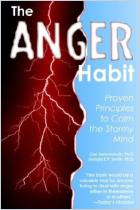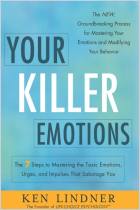Anger is a human emotion all people share. You can’t help getting angry – and that’s OK. The trouble starts only when angry feelings cause you to act in a hurtful or destructive way. This episode of cognitive scientist and psychology professor Laurie Santos’s popular podcast, The Happiness Lab, offers scientific insights into what causes you to be angry. Her guest, therapist and best-selling author Faith Harper, shares hands-on strategies for channeling anger toward something constructive and purposeful.
Anger is a physiological reaction to a perceived threat.
Anybody who has experienced road rage knows how your state of mind can change from calmness to anger within milliseconds. Anger follows quickly when people recognize a threat. The nervous system gets wound up and releases energy to propel you into action to address the perceived threat. That’s why anger feels so uncomfortable.
Your body has more control over your brain than your brain has over your body. The vagus nerve, which connects to almost all body parts, mounts a physiological response to a perceived threat before you even become conscious of the threat.
People’s common rage triggers are evolutionary based. Individuals get angry because their life or the lives of members of their family or tribe – on which they depend for survival – are in danger. Similarly, when your environment and resources you depend on are under threat, this can trigger an anger response.
Road rage, for example, is so powerful because it often involves several of these anger triggers: Fear for your life and possibly the life of a child in the backseat, as well as fear of your property and personal space – in the form of...
In her podcast, The Happiness Lab, Yale professor of psychology Laurie Santos explores the latest scientific research on happiness. She also serves as director of Yale’s Comparative Cognition Laboratory and its Canine Cognition Lab. Guest Faith Harper is a psychologist and the author of Unf*ck Your Anger: Using Science to Understand Frustration, Rage, and Forgiveness.

















Comment on this summary or Démarrer une discussion